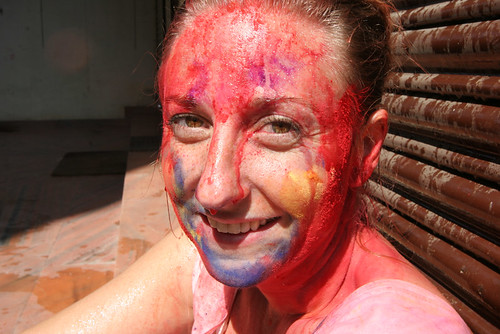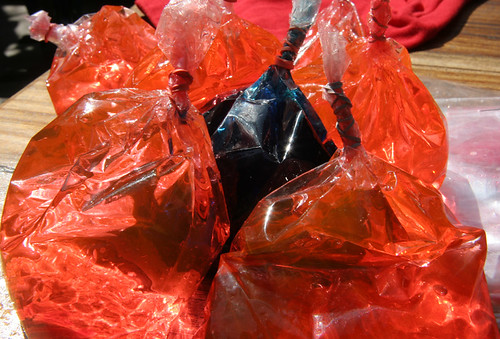Today I tried a Transcendental Meditation (TM) course in Kathmandu. It is a course in 4 parts followed up closely with a lifetime of twice a day practice. TM and Mr Maharishi Mahesh Yogi got a large boost of publicity in the 60s when the Beatles came to visit.
According to the TM organisation's website the technique is a simple as falling off a log, yet you can't learn it from a book, tape, video etc. To learn it you have to pay money. No open source approach here.
The first step was an introduction about what TM is. There was quite a lot of theorising about how TM is scientific in its nature. Well reaching a physiologically calmer state during meditation seems to have been proven, but I am not so sure about the link between that meditative state and the Unified Theory of quantum physics for instance.
One thing that appealed to me was the idea that as the body naturally tends towards healing itself, the mind tends naturally towards happiness - all you have to do is let it. A nice thought. The result of calming the thoughts in the mind, should be bliss (a fantastic word) which - I get confused here - is the point where the noise of conscious thoughts stop and pure ego-free awareness is experienced... something like that - sure there must be something on Wikipedia about it.
So the technique is really just sitting comfortably and using a mantra to focus the mind on as little as possible for 20 minutes. When distractions come, slowly repeating the mantra allow you to put those thoughts and distractions to one side.
Right now I should be doing my first mediation practice but I am writing this, don't have a cushion, am hungry, need to do any number of other things. 20 minutes is a lot of time.
But I will do it. In summary, I think if you take 40 minutes out of your waking hours to sit quietly, relax, breath gently, think of nothing and occasionally feel blissfulness, that can only be a good thing. The question is will I be able to notice benefits - what, how and when? And will the seemingly excessive cash outlay be worth it?







